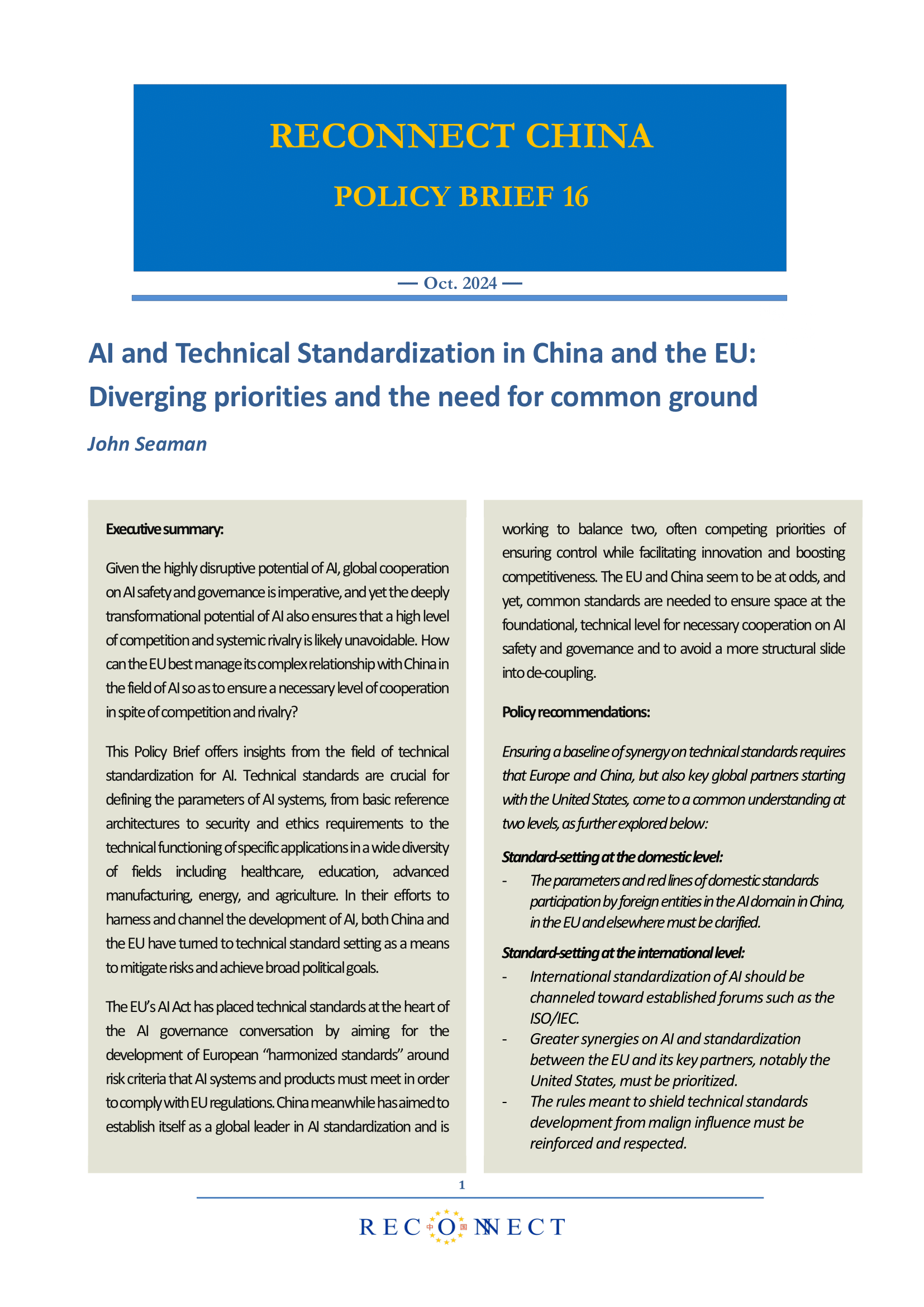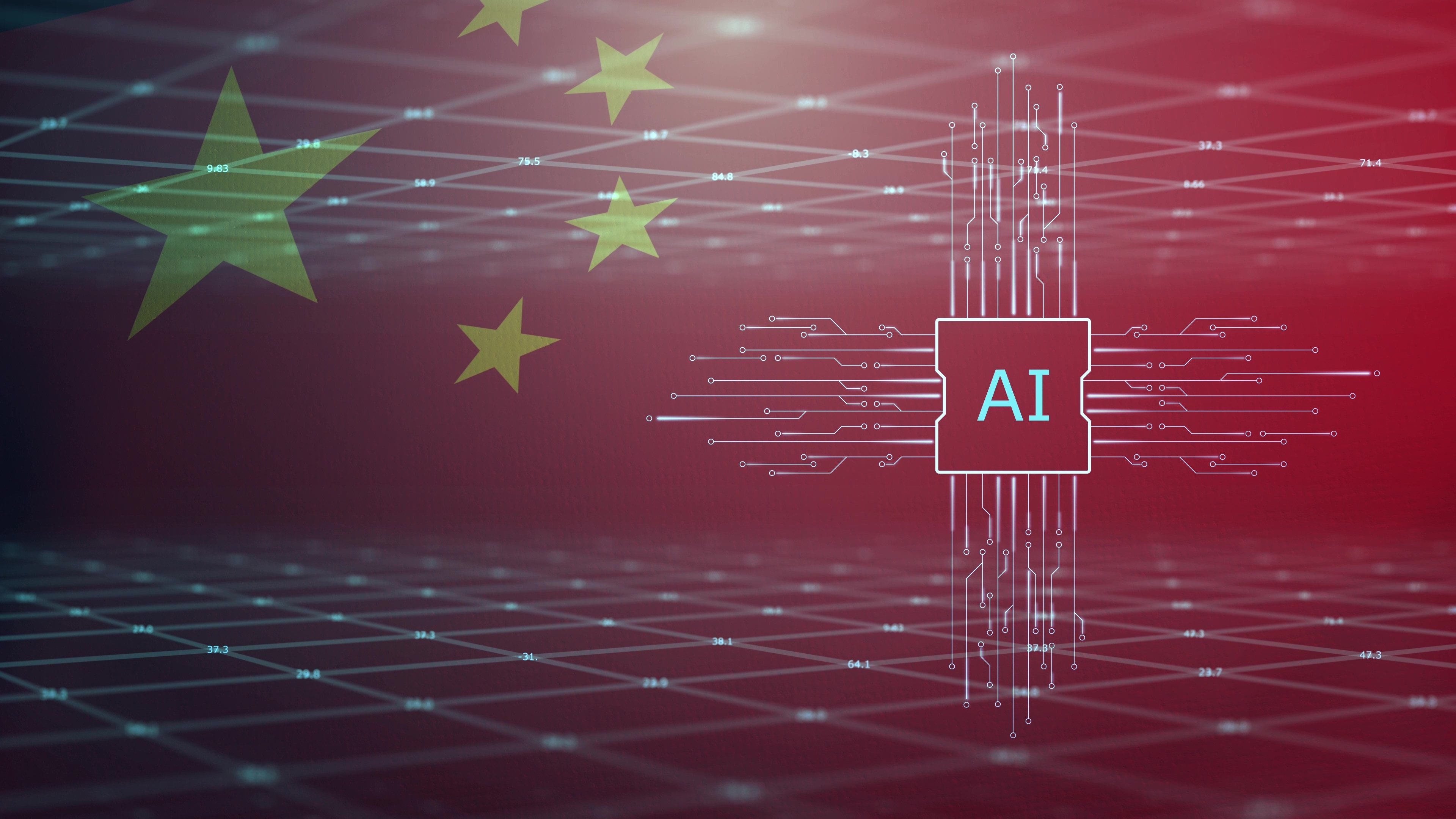AI and Technical Standardization in China and the EU: Diverging priorities and the need for common ground

Given the highly disruptive potential of AI, global cooperation on AI safety and governance is imperative, and yet the deeply transformational potential of AI also ensures that a high level of competition and systemic rivalry is likely unavoidable. How can the EU best manage its complex relationship with China in the field of AI so as to ensure a necessary level of cooperation in spite of competition and rivalry?

This Policy Brief offers insights from the field of technical standardization for AI. Technical standards are crucial for defining the parameters of AI systems, from basic reference architectures to security and ethics requirements to the technical functioning of specific applications in a wide diversity of fields including healthcare, education, advanced manufacturing, energy, and agriculture. In their efforts to harness and channel the development of AI, both China and the EU have turned to technical standard setting as a means to mitigate risks and achieve broad political goals.
The EU’s AI Act has placed technical standards at the heart of the AI governance conversation by aiming for the development of European “harmonized standards” around risk criteria that AI systems and products must meet in order to comply with EU regulations. China meanwhile has aimed to establish itself as a global leader in AI standardization and is working to balance two, often competing priorities of ensuring control while facilitating innovation and boosting competitiveness. The EU and China seem to be at odds, and yet, common standards are needed to ensure space at the foundational, technical level for necessary cooperation on AI safety and governance and to avoid a more structural slide into de-coupling.
Policy recommendations:
Ensuring a baseline of synergy on technical standards requires that Europe and China, but also key global partners starting with the United States, come to a common understanding at two levels, as further explored below:
Standard-setting at the domestic level:
- The parameters and red lines of domestic standards participation by foreign entities in the AI domain in China, in the EU and elsewhere must be clarified.
Standard-setting at the international level:
- International standardization of AI should be channeled toward established forums such as the ISO/IEC.
- Greater synergies on AI and standardization between the EU and its key partners, notably the United States, must be prioritized.
- The rules meant to shield technical standards development from malign influence must be reinforced and respected.
Download the ReConnect China Policy Brief via the project’s website: AI and Technical Standardization in China and the EU: Diverging priorities and the need for common ground

Available in:
Themes and regions
Share
Related centers and programs
Discover our other research centers and programsFind out more
Discover all our analyses
RAMSES 2024. A World to Be Remade
For its 42nd edition, RAMSES 2024 identifies three major challenges for 2024.

France and the Philippines should anchor their maritime partnership
With shared interests in promoting international law and sustainable development, France and the Philippines should strengthen their maritime cooperation in the Indo-Pacific. Through bilateral agreements, expanded joint exercises and the exchange of best practices, both nations can enhance maritime domain awareness, counter security threats and develop blue economy initiatives. This deeper collaboration would reinforce stability and environmental stewardship across the region.

The China-led AIIB, a geopolitical tool?
The establishment of the Asian Infrastructure Investment Bank (AIIB) in 2016, on a Chinese initiative, constituted an attempt to bridge the gap in infrastructure financing in Asia. However, it was also perceived in the West as a potential vehicle for China’s geostrategic agendas, fueling the suspicion that the institution might compete rather than align with existing multilateral development banks (MDBs) and impose its own standards.
Jammu and Kashmir in the Aftermath of August 2019
The abrogation of Article 370, which granted special status to the state of Jammu and Kashmir (J&K), has been on the agenda of the Bharatiya Janata Party (BJP) for many decades.








